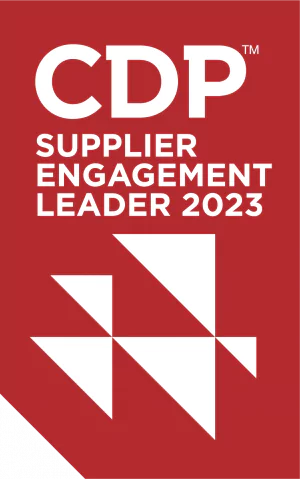YKK Corporation (Headquarters: Chiyoda-ku, Tokyo; President: Hiroaki Otani; hereafter, YKK) is pleased to announce that it has received the highest Leaderboard status for the second year running in the FY2023 Supplier Engagement Rating (SER) conducted by the international non-profit organization CDP*.
This selection indicates that YKK’s governance, targets, and initiatives to collaborate with suppliers to reduce GHG emissions, all aimed at reducing GHG emissions throughout the YKK supply chain, constitute efforts befitting a global leader. In FY2023, over 450 companies around the world were selected for the SER Leaderboard.
In February 2024, YKK also received the highest “A List” rating in the CDP Climate Change 2023 Questionnaire undertaken by CDP. This was YKK’s first ever A List selection. This recognition underscores YKK’s dedication to combatting climate change and its pledge to uphold transparent information disclosure in alignment with the objectives of the Paris Agreement.
Takayuki Aoki, Vice President of the Procurement and Logistics Department at YKK, commented, “Since the establishment of our YKK Sustainability Vision 2050 in October 2020, we have been steadfast in our pursuit of sustainability goals. By fostering strong partnerships with customers and suppliers, grounded in the ethos of the YKK philosophy – the Cycle of Goodness®, we have achieved remarkable progress in reducing GHG emissions.

Receiving the highest Supplier Engagement Rating for the second consecutive year is a testament to our collective efforts. Looking ahead, we remain committed to collaborating closely with our suppliers to comprehensively address GHG emissions across our entire supply chain. Together, we strive to pave the way towards a decarbonized society.”
*CDP: An international non-profit organization with a worldwide system to enable corporate and public environmental disclosure. Established in 2000, the organization makes use of capital markets and the power of corporate purchasing to take the lead in encouraging companies to disclose their environmental impacts, reduce GHG emissions, and protect water resources and forests.



















